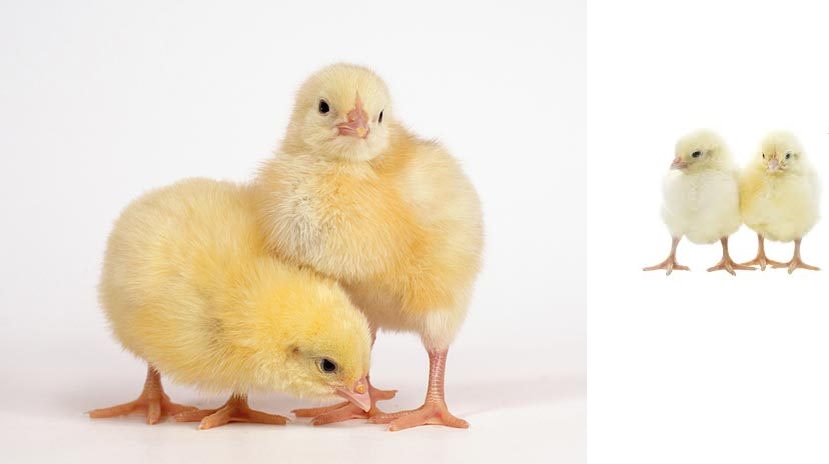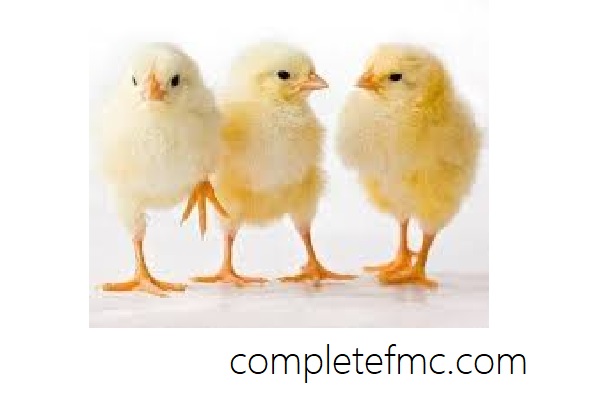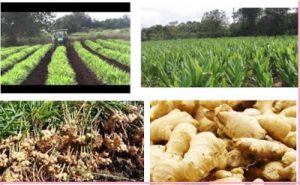The Importance of Vaccination and Medication in Poultry Farming – The significance of administering vaccines and medication in poultry farming cannot be overstated. Now do you want to understand how important vaccination and dedication are in the poultry business? Ok. Then, here is all you need to know. So, read more on The Importance of Vaccination and Medication in Poultry Farming.
Poultry farming plays a crucial role in meeting the ever-growing global demand for poultry products. However, with the intensification of this industry, the risk of disease outbreaks among poultry has also escalated. To safeguard the health and well-being of these birds, vaccination and appropriate medication have emerged as indispensable tools for poultry farmers. Read more about The Importance of Vaccination and Medication in Poultry Farming here.
The significance of implementing vaccination and medication protocols cannot be overstated, as they not only prevent and control infectious diseases but also contribute to maintaining the overall productivity and profitability of poultry farms. In this article, we will deal with the vital importance of vaccination and medication in poultry farming, highlighting their roles in ensuring a sustainable and thriving industry.
The Importance of Vaccination and Medication in Poultry Farming:
Table of Contents
As hinted above, this article will focus on the crucial role of vaccination and medication in poultry farming. Therefore, the following practices play a significant role in maintaining a sustainable and prosperous industry.
Vaccination in Poultry Farming:
Disease Prevention:
Vaccination is the primary line of defense against infectious diseases in poultry. It helps build immunity in birds, making them more resistant to various pathogens. By vaccinating birds against common diseases like Newcastle disease, avian influenza, infectious bronchitis, and Marek’s disease, poultry farmers can significantly reduce the risk of disease outbreaks within their flocks. The Importance of Vaccination and Medication in Poultry Farming
Herd Health Management:
Vaccination is an essential component of an effective herd health management program. Poultry farmers often follow a well-designed vaccination schedule to ensure that birds receive the necessary shots at the right time. This proactive approach prevents diseases from spreading and minimizes the need for antibiotics and other medications, which can lead to antibiotic resistance if overused.
Increased Productivity:
Healthy birds are more productive and grow faster, leading to improved meat and egg production. Vaccination helps maintain optimal flock health, ensuring that the birds reach their genetic potential and produce high-quality products efficiently. The Importance of Vaccination and Medication in Poultry Farming
Cost-Effectiveness:
While vaccination incurs an initial cost, it is highly cost-effective in the long run. Preventing diseases through vaccination is much more economical than dealing with the consequences of an outbreak, which could lead to significant financial losses, increased mortality rates, and higher treatment expenses.
Public Health Concerns:
Proper vaccination in poultry farming is also essential from a public health perspective. Some avian diseases, such as avian influenza, can pose a risk to humans, particularly when there is close contact between infected birds and humans. By preventing these diseases through vaccination, the risk of zoonotic transmission is minimized.
Medication in Poultry Farming:
Disease Treatment:
Despite the best preventive measures, outbreaks can still occur in poultry farms. In such cases, appropriate medication becomes necessary to treat infected birds and contain the spread of the disease. Antibiotics, antivirals, and other medications are used under veterinary supervision to manage and control disease outbreaks effectively. Get The Importance of Vaccination and Medication in Poultry Farming here.
Supporting Recovery:
In cases where birds have recovered from a disease, medications can aid in their recovery process, ensuring they regain their strength and health more rapidly. This allows birds to resume normal growth and production sooner.
Pain Relief:
Some diseases and conditions can cause discomfort and pain in birds. Medication can be administered to alleviate pain and distress, contributing to the overall welfare and well-being of the flock. Get The Importance of Vaccination and Medication in Poultry Farming here.
Nutritional Support:
Medications are sometimes used to provide additional nutritional support to sick or stressed birds, helping them maintain their energy levels and immune function during challenging times.
Precision Medicine:
Advances in veterinary medicine have led to more targeted and specific medications for poultry. This precision medicine approach allows for more effective treatments with reduced side effects, promoting better health outcomes for the birds. Get The Importance of Vaccination and Medication in Poultry Farming here.

Related Articles:
- How to Write a business plan Market Analysis Segment
- Business Plan Writing: How to Write the Company Description
- How to Write Organization and Management Team Segment of Business Plan
- A Sample private primary school business plan in Nigeria
- Business Plan Product and Services Segment Plan
- Authentic Basics of Disease Prevention for Poultry Farm Health
Related Posts: The Importance of Vaccination and Medication in Poultry Farming
Now, these are the related topics to be considered in this article. They are to boost your understanding of this topic.
- What are poultry vaccines and their uses?
- Why is vaccination important in broilers?
- What is the principle behind vaccination in chickens?
- What are the different methods of vaccination in poultry?
Poultry vaccines are a crucial tool in managing and preventing various infectious diseases in chickens and other domestic birds. Vaccination helps stimulate the birds’ immune systems to produce protective antibodies against specific pathogens, reducing the risk of disease outbreaks and improving overall flock health and productivity. Get The Importance of Vaccination and Medication in Poultry Farming here.
Uses of Poultry Vaccines:
Prevention of Viral Diseases:
Poultry vaccines are available for diseases like Newcastle disease, infectious bronchitis, infectious bursal disease (Gumboro disease), avian influenza, Marek’s disease, etc.
Bacterial Disease Prevention:
Vaccines can protect against bacterial infections, such as fowl cholera, and mycoplasma infections.
Parasite Control: Some vaccines are used to combat poultry parasites, including coccidiosis.
Importance of Vaccination in Broilers:
Broilers are chickens raised specifically for meat production. They are usually kept in high-density environments where diseases can spread rapidly. Vaccination is crucial for broilers because:
Disease Prevention:
Vaccination helps prevent contagious diseases that can quickly spread among the birds and cause significant losses. Get The Importance of Vaccination and Medication in Poultry Farming here.
Economic Benefits:
Healthy birds grow faster and convert feed more efficiently, resulting in better meat production and higher profits.
Antibiotic Reduction:
By preventing diseases, vaccination reduces the need for antibiotics, promoting better poultry farming practices and addressing concerns about antibiotic resistance.
The principle behind Vaccination in Chickens:
Vaccination in chickens works on the principle of introducing a modified or weakened form of the pathogen or its specific components (antigens) into the bird’s body. This exposure triggers the chicken’s immune system to recognize the pathogen and produce antibodies that can neutralize or destroy the actual pathogen if encountered in the future. Essentially, vaccination “teaches” the immune system how to defend against specific diseases without causing severe illness. Get The Importance of Vaccination and Medication in Poultry Farming here.
Different Methods of Vaccination in Poultry:
Subcutaneous Injection:
The vaccine is injected under the skin, usually in the neck region. It provides a quick immune response and is commonly used for Marek’s disease and fowl pox vaccines.
Intramuscular Injection:
The vaccine is injected into the muscle. It is used for certain oil-emulsion vaccines and can provide longer-lasting immunity. Get The Importance of Vaccination and Medication in Poultry Farming here.
Intranasal or Eye Drop Administration:
The vaccine is given through the nostrils or eyes. This method is commonly used for respiratory vaccines like Newcastle disease.
Oral Vaccination:
The vaccine is administered through drinking water or as part of the feed. It is commonly used for preventing certain viral and bacterial infections. Get The Importance of Vaccination and Medication in Poultry Farming here.
Spray Vaccination:
The vaccine is sprayed onto the chickens, allowing them to inhale it. It is used for respiratory diseases like infectious bronchitis.
Wing Web Vaccination:
The vaccine is applied to the wing web, where the skin is thin and easily accessible for vaccine application.
Feather Follicle Vaccination:
The vaccine is applied to feather follicles, which is another method for administering Marek’s disease vaccines.
So, it’s essential to follow proper vaccination schedules, storage, and administration procedures to ensure the effectiveness of vaccines and protect the poultry flock from potential diseases. Poultry farmers often work closely with veterinarians or poultry health experts to design and implement appropriate vaccination programs tailored to the specific needs of their flocks. Get The Importance of Vaccination and Medication in Poultry Farming here.
5 things to do when doing poultry vaccination:
When performing poultry vaccination, it’s crucial to ensure that the process is carried out efficiently and effectively to achieve maximum protection for the birds. Here are five important things to do when vaccinating poultry:
Preparation and Planning:
Before starting the vaccination process, proper preparation and planning are essential. This includes ensuring that you have the correct vaccines for the specific diseases you want to protect against. Read the vaccine labels and instructions carefully to understand the proper storage conditions, expiration dates, and recommended administration methods. Get The Importance of Vaccination and Medication in Poultry Farming here.
Vaccine Handling and Storage:
Vaccines are sensitive to temperature and light, so maintaining the correct storage conditions is critical for their efficacy. Store vaccines in a dedicated refrigerator, separate from food items and monitor the temperature regularly to ensure it stays within the recommended range. Also, protect vaccines from direct sunlight and avoid exposing them to extreme heat or freezing temperatures during transportation.
Proper Administration Techniques:
Follow the manufacturer’s instructions for the appropriate administration technique for each vaccine. Whether it’s subcutaneous injection, intramuscular injection, oral administration, or another method, make sure you are familiar with the correct procedure and equipment to use. Use sterile needles and syringes for each bird or batch to prevent contamination. Get The Importance of Vaccination and Medication in Poultry Farming here.
Vaccination Timing:
Timing is crucial when vaccinating poultry. Administer the vaccines at the appropriate age to ensure the birds’ immune systems are mature enough to respond effectively. Additionally, consider the risk of exposure to pathogens and the prevalence of diseases in the area to determine the best timing for vaccination.
Record Keeping:
Maintain accurate and detailed records of the vaccination process. Create a vaccination log that includes information such as the date of vaccination, type of vaccine administered, batch number, number of birds vaccinated, and any observations or adverse reactions. Keeping good records will help you track the vaccination history of your flock and aid in disease management. Get The Importance of Vaccination and Medication in Poultry Farming here.
Biosecurity Measures:
Before and after vaccination, practice strict biosecurity measures. Wash your hands thoroughly and use appropriate disinfectants to prevent the spread of potential pathogens between birds or flocks. Clean and disinfect all equipment after use to minimize the risk of disease transmission.
You have to note that poultry vaccination is just one aspect of a comprehensive biosecurity and health management program. Regular monitoring of bird health, proper nutrition, hygiene, and disease prevention strategies should all be part of an integrated approach to ensure the well-being and productivity of your poultry flock.
If you’re unsure about any aspect of poultry vaccination, consult with a poultry veterinarian or experienced poultry health specialist for guidance. Get The Importance of Vaccination and Medication in Poultry Farming here.

Read More:
- Poultry Farming Broiler Vaccination & Medication For Today’s Farmer
- Poultry Farming Feed Management Tips For Today’s Farmer
- Business Information Enquiries on Poultry Farming in Nigeria
- Poultry Farming – Heat Stress Management Tips
- Poultry Farming – Bio Security Measures
- Quality Guide to Poultry Farming Vaccination and Medication Programs
- Poultry and Livestock farming
- How to maintain good hygiene for poultry
- Importance of Poultry vaccination and medication
- Amazing importance of Poultry Farm vaccination and medication.
- How to discover poultry diseases
- And Poultry Farming Routine Management Practice for Today’s Farmer
- How to Maximize Poultry Health and Productivity
- Understanding the Different Types of Vaccines and Medications for Poultry Farming
Get help:
If you need assistance with incorporating your business and planning, please reach out to [email protected] or call +234 8034347851. We would be glad to help at a minimal cost.
Take Aways:
Vaccination and medication are indispensable tools in modern poultry farming. While vaccination primarily focuses on disease prevention, medication comes into play when outbreaks occur or when individual birds require treatment and support. Get The Importance of Vaccination and Medication in Poultry Farming here.
By implementing a comprehensive and well-managed vaccination and medication program, poultry farmers can safeguard the health and productivity of their flocks, contribute to food safety, and ensure a sustainable and thriving poultry industry.
Additionally, adopting these practices responsibly can also address concerns regarding antimicrobial resistance and public health implications associated with poultry diseases. Thanks for reading through Get The Importance of Vaccination and Medication in Poultry Farming.

Deacon Anekperechi Nworgu, a seasoned economist who transitioned into a chartered accountant, auditor, tax practitioner, and business consultant, brings with him a wealth of industry expertise spanning over 37 years.


